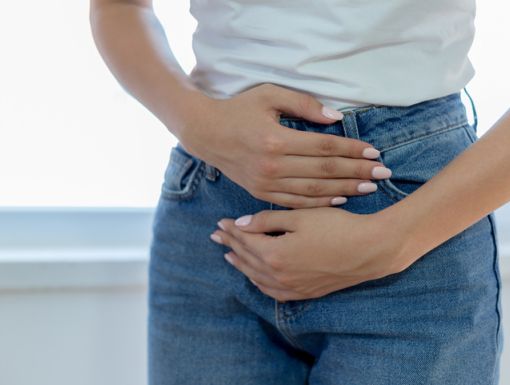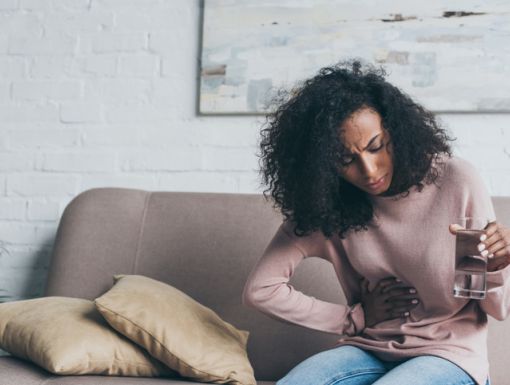
Crohn's Disease: Could Persistent, Painful Stomach Cramps Be a Symptom?
We’ve all experienced an upset stomach or even uncomfortable abdominal pain at some point, but what does it mean when that pain is chronic and impacts your quality of life or normal routine?
For some, it could mean a diagnosis of Crohn’s disease. This painful gastrointestinal disorder causes inflammation and irritation in your digestive tract. Most commonly, Crohn’s affects your small intestine and the beginning of your large intestine, but the disease can affect any part of your digestive tract. Crohn’s disease is considered an inflammatory bowel disease (IBD) and most often begins gradually and worsens over time. Some people with Crohn’s may have periods of remission that can last for months or years.
The National Institute of Diabetes and Digestive and Kidney Diseases estimates more than half a million people in the United States have Crohn’s. This disease can develop at any age, but is more likely to be present in those who:
- Are between the ages of 20 and 29
- Have a family member with IBD
- Smoke cigarettes
What are the symptoms of Crohn’s disease?
Symptoms of Crohn’s can vary from person to person, but the most common are weight loss, diarrhea, abdominal cramping and pain and fatigue. Depending on the location and severity of your inflammation, other symptoms can include:
- Fever
- Nausea or loss of appetite
- Anemia
- Red, tender bumps under the skin
- Joint pain or soreness
Some research suggests that stress, including the stress of living with Crohn’s disease, can make symptoms worse. Some people may find that certain foods can trigger or worsen their symptoms.
What causes Crohn’s disease?
The exact cause of Crohn’s isn’t known, but medical experts think the following factors play a role:
Genes: Crohn’s disease sometimes runs in families. Research has shown that if you have a parent or sibling with Crohn’s, you may be more likely to develop the disease. Experts continue to study the link between genes and Crohn’s disease.
Autoimmune reaction: This happens when your immune system attacks healthy cells in your body. Experts think bacteria in your digestive tract can mistakenly trigger your immune system. This immune system response causes inflammation, leading to symptoms of Crohn’s disease.
People with Crohn’s disease might experience complications, as Crohn’s can thicken the wall of your intestines. Over time, the thickened areas can narrow, causing a partial or complete intestinal obstruction, also called a bowel blockage. This can block the movement of food or stool through your intestines. Everyone will not experience the same issues, but there are several other complications to be aware of, including:
- Fistulas: In Crohn’s disease, inflammation can go through the wall of your intestines and create tunnels, or fistulas. Fistulas are abnormal passages between two organs, or between an organ and the outside of your body, and can become infected.
- Abscesses: Inflammation that goes through the wall of your intestines can also lead to abscesses. Abscesses are painful, swollen, pus-filled pockets of infection.
- Anal fissures: Anal fissures are small tears in your anus that may cause itching, pain or bleeding.
- Ulcers: Inflammation anywhere along your digestive tract can lead to open sores in your mouth, intestines, anus, or perineum (the area in front of the anus).
- Malnutrition: This develops when your body does not get the right amount of vitamins, minerals and nutrients it needs to maintain healthy tissues and organ function.
Can Crohn’s disease be treated?
There isn’t a cure for Crohn’s disease, but it can be managed. The goals of treatment are to decrease the inflammation in your intestines, prevent flare-ups of your symptoms and keep you in remission. No single treatment works for everyone, but your gastroenterologist may suggest medications, a change in diet, surgery, or bowel rest.
Bowel rest involves drinking only certain liquids or not eating or drinking anything. During bowel rest, your doctor may ask you to drink a liquid that contains nutrients, give you a liquid that contains nutrients through a feeding tube inserted into your stomach or small intestine, or give you intravenous (IV) nutrition through a special tube inserted into a vein in your arm. You may stay in the hospital, or you may be able to receive treatment at home. In most cases, your intestines will heal during bowel rest.
It’s important to seek care if you are experiencing long bouts of abdominal pain or other symptoms associated with Crohn’s disease. The gastroenterology team at Ochsner can design a plan tailored to your needs. Learn more about stomach and digestive care here.
To learn more about Dr. Christopher Hodnette, or to make an appointment, click here.


